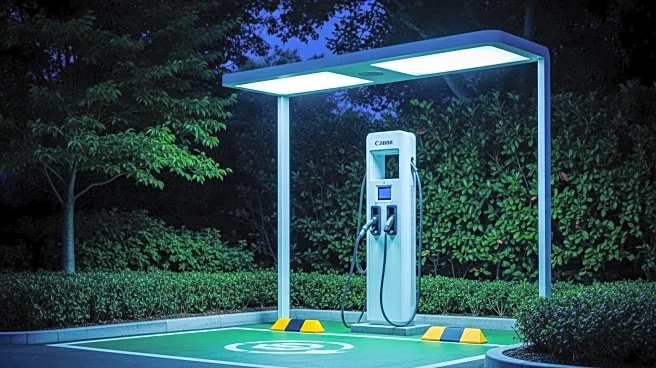What's Happening?
Ford CEO Jim Farley has expressed concerns over President Trump's policies affecting the electric vehicle (EV) market, predicting a significant decline in U.S. demand. Speaking at a conference, Farley highlighted the impact of the expiration of the federal $7,500 EV tax credit, which was part of Trump's One Big Beautiful Bill Act. The removal of this incentive, along with the rollback of federal emissions standards, poses challenges for the EV industry, which currently accounts for nearly 10% of the domestic market.
Why It's Important?
The potential decline in EV demand could have significant implications for the automotive industry and efforts to transition to cleaner energy sources. The expiration of the EV tax credit removes a key financial incentive for consumers, potentially slowing the adoption of electric vehicles. Additionally, the rollback of emissions standards could hinder progress towards reducing carbon emissions and meeting environmental goals. Automakers may need to adjust their strategies and investments in response to these policy changes.
What's Next?
Automakers are likely to reassess their production and investment plans in light of the changing policy landscape. Some companies may delay the launch of new EV models or shift focus back to internal combustion vehicles. The industry will need to navigate these challenges while continuing to advocate for supportive policies that promote the growth of the EV market. The long-term impact of these policy changes will depend on the industry's ability to adapt and innovate in response to evolving consumer preferences and regulatory environments.










